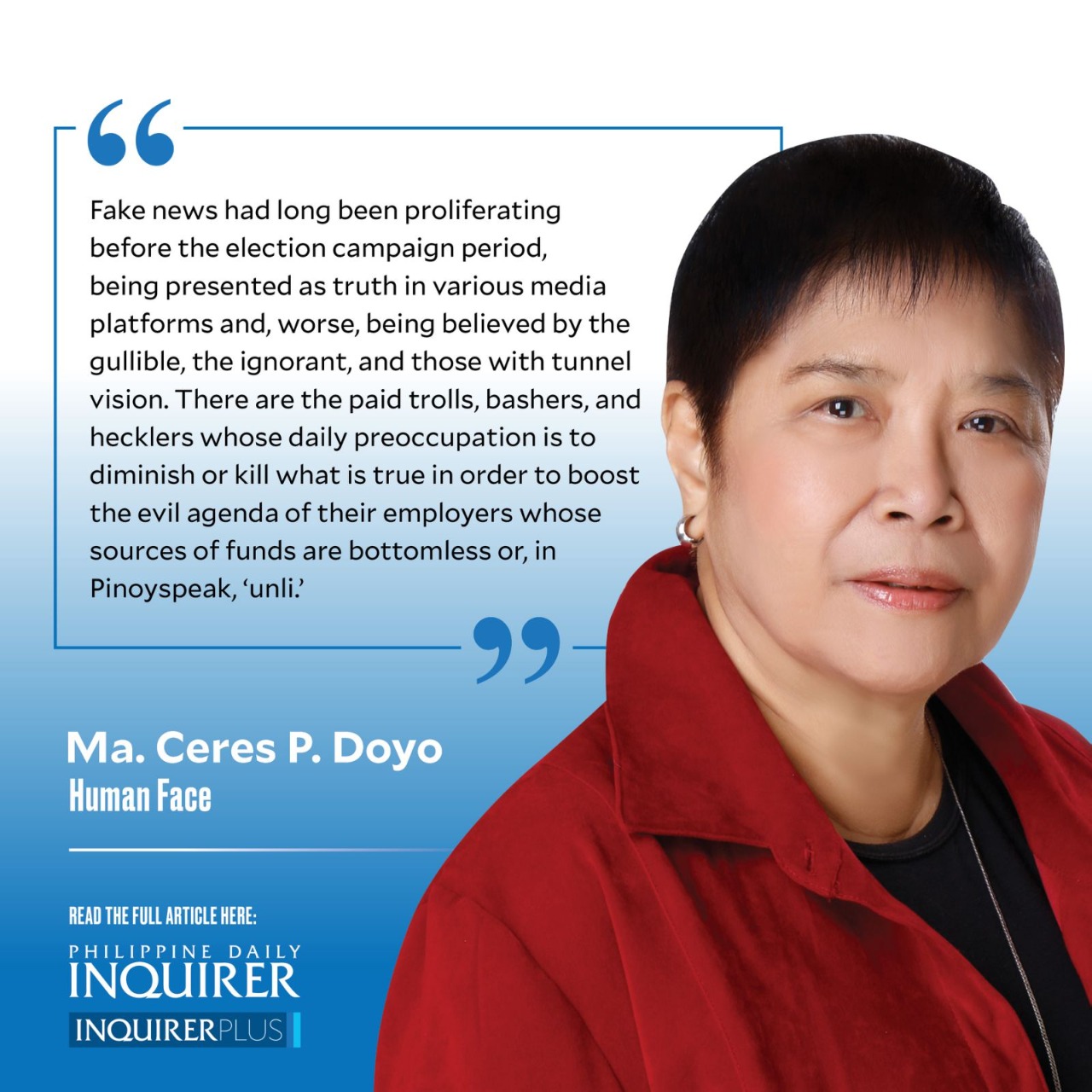Timely and timeless: Diokno@100
Former senator Jose “Pepe” W. Diokno, lawyer, human rights defender, former political prisoner, and nationalist who died at age 65 in 1987 would have turned 100 on Feb. 26, 2022. Human rights advocates organized activities to honor his memory, to stoke further the embers sorely needed to keep the flames alive, flames to light the road ahead. The skies are darkening and this country is in the gloaming, in that hour between daylight and night.
But enough with figures of speech. Fake news had long been proliferating before the election campaign period, being presented as truth in various media platforms and, worse, being believed by the gullible, the ignorant, and those with tunnel vision. There are the paid trolls, bashers, and hecklers whose daily preoccupation is to diminish or kill what is true in order to boost the evil agenda of their employers whose sources of funds are bottomless or, in Pinoyspeak, “unli.”
Yesterday, I again went over “A Nation for Our Children,” a collection of Diokno’s writings and speeches. It behooves us to hearken to him, this man whom the late Bishop Julio Labayen called “a prophet of our times.”
In 1983, Pepe Diokno delivered the Jose Rizal Lecture at the Philippine PEN Conference where the theme was “The Writer in a Climate of Fear.” That was three weeks before the assassination of Ninoy Aquino, the watershed moment that would explode into nationwide rage.
Diokno’s main source was Rizal’s own writings, the “Noli” and the “Fili.” Meticulously referenced, Diokno’s long lecture was directed at writers who, as he quoted Rizal, “feel their wings but find themselves in chains, choking for want of the air of freedom.”
Today, we choke even more because of the cacophony of falsehoods that threaten to deaden the senses.
Diokno freely translates poet Cecilio Apostol on Rizal: “But if a bullet destroyed your cranium/ Your ideas in turn destroyed an imperium.”
Diokno’s lament: “Rizal’s writings did destroy an empire. But, to our sorrow, they failed to change society. The late Leon Ma. Guerrero, perhaps the best English translator of Rizal, has stressed Rizal’s ‘timelessness, or more precisely, [his] timeliness in another world and another age.’
“So our tasks as Filipinos remain the same as they were in Rizal’s days: regain our freedom as individuals, assert our sovereignty as a people, and use our freedom and our sovereignty to create a just society. And your tasks as writers also remain the same. For as Rizal said, ‘The struggle must commence in the field of ideas before it can descend into the arena of action.’
“I do not ask you to lead, or to teach, and much less to agitate our people for this or that cause or credo. What I ask of you is much simpler: to be great writers. Great in the sense in which Rizal spoke of the greatness of man: ‘A man is great, not because he goes ahead of his generation, which is in any case impossible, but because he discerns what it wants.’ That, ultimately, is your job; to discern what our people want and say it clearly so that they themselves will see it, and seeing, gather their strength to achieve it.
“It is a dangerous and difficult task you must undertake. You face the same risks Rizal did: harassment by interrogation and libel suits which some of you have already experienced, arrest and detention which others among you have undergone, torture perhaps, even disappearance and extra-legal execution…
“In today’s climate of fear, how can we afford to face those dangers? It is precisely because of the climate of fear that we cannot afford not to face those dangers. We must damn the risks … say what must be said, and suffer the consequences. Writers can lay down their pens and tear up their manuscripts—but I know of no human—and writers are nothing if they are not human—who can completely silence his conscience.”
In another speech from which the book’s title was taken, Diokno said: “[Ferdinand E.] Marcos has built his entire social system on a system of falsehoods, on a system of repressing creativity, and on creating in our people a feeling of impotence and helplessness. What are we doing to our children? Our system must be the complete opposite. Our system must tell our children the truth.”
So, damn the risks.





















